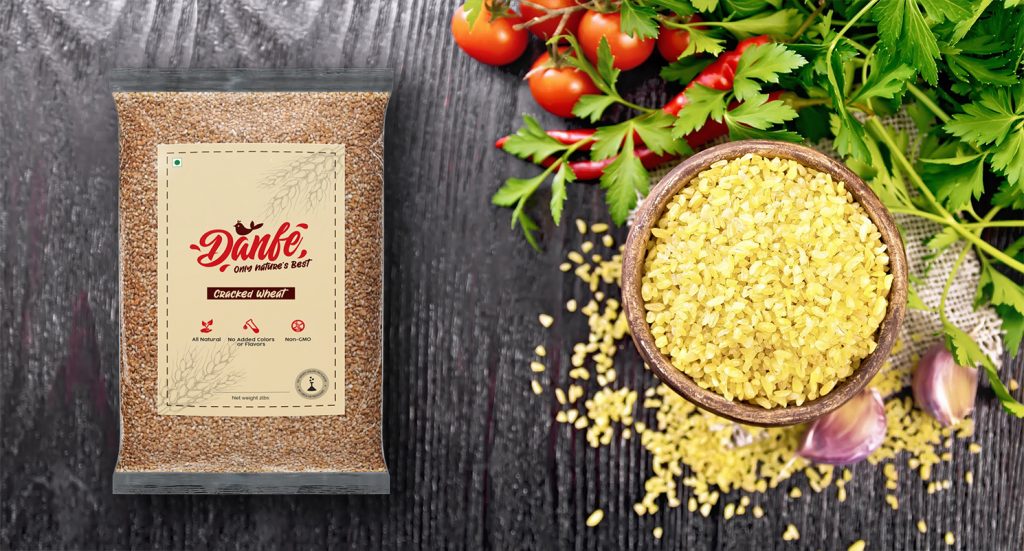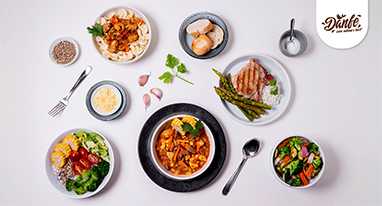What is Bulgur Wheat: Nutrition, Benefits and More
BY DANFE |

Bulgur is an edible cereal grain made from dried, cracked wheat, mostly durum wheat, but other wheat species can also be used. It is considered a whole grain since the entire wheat kernel is consumed which includes the germ, endosperm, and bran.
Bulgur Wheat or cracked wheat is packed with nutrients and was popular in the ancient Mediterranean region. Bulgur mixes well with herbs and vegetables and is the main ingredient in popular Middle Eastern dishes such as tabbouleh (bulgur salad) and kibbeh (a kind of meatball).
Bulgur is prepared by boiling, drying, and grinding the kernels of wheat which results in a firm grain that can be consumed like rice or couscous, or it can be used as an ingredient for soups, recipes, and baked goods. Bulgur or cracked wheat is usually boiled but it can also be fried, baked, roasted.

This nutritious cereal grain is easy to prepare and comes with several potential health benefits.
Let us take a look at some of its health benefits:
Helps in weight management
Weight loss is promoted by a high-fiber diet. Consumption of fiber increases the feeling of fullness and nourishes the bacteria in the gut without having to consume too many calories. It also helps to slow the absorption of fats and sugars in the small intestine, which in turn helps the body control blood sugar levels and increase metabolism. As a high-fiber food, bulgur wheat makes an excellent addition to a fiber-rich, low-fat diet and helps manage weight in the long run.
Helps control blood sugar levels
According to several studies, consumption of whole grains leads to a reduction of type II diabetes. It also leads to healthier blood sugar levels and enhanced insulin sensitivity, which in turn helps manage diabetes.
Reduces heart risks
Eating bulgur wheat helps protect the heart, prevent cardiovascular disorders and heart diseases. According to one study, for every 10 grams of fiber added to a diet, the risk of death from coronary heart disease dropped by 17–35%.
Promotes a healthy gut
Regular consumption of whole grains like cracked wheat can promote the growth of healthy gut bacteria. These bacteria produce short-chain fatty acids, which support intestinal health and the proper functioning of the digestive system. Moreover, adequate intake of fiber-rich foods may also be effective for treating and preventing digestive issues like constipation.
How to prepare Bulgur Wheat
Bulgur wheat is quick and easy to cook since it’s already parboiled.
Ingredients:
- 1 cup of bulgur wheat
- 1½ cups of water
- 1 tsp of olive oil
- A pinch of salt
Procedure:
- In a saucepan, add all ingredients and combine over medium-high heat.
- When water is at a boil, cover and reduce the heat to low.
- Cook for 12 minutes.
- Remove the pan from the oven and let it sit covered for 10 minutes.
- Serve the bulgur as a side dish or use it in your favorite recipe in place of brown rice.

How to use Cracked Wheat
Though Mediterranean in origin, bulgur remains a staple in Middle Eastern cuisine. It’s frequently used in salads like pilafs, along with herbs, vegetables, spices, and other grains. It can be used as a base for breakfast-style porridges with oats, or in soups, stews, and chili. It can be used in any recipe that consists of rice, couscous, or a similar grain.

Bulgur is easily available in any major grocery/e-Commerce store and is relatively inexpensive. But always look for products that are 100% natural and pure as these foods retain the maximum nutrient value! One important thing to keep in mind is that bulgur is a wheat product, therefore, people with wheat or gluten allergy or intolerance should avoid its consumption.




